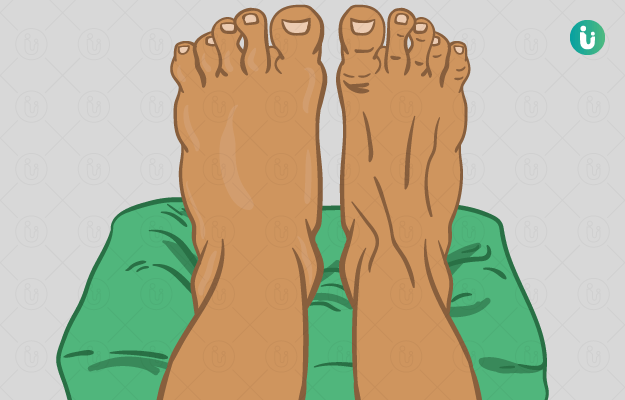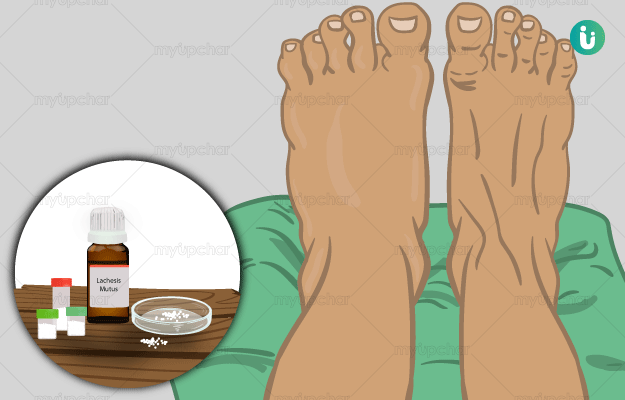Summary
Swelling in the feet also called as edema is the collection of excessive fluid. Painless swelling of the feet and ankles is a common problem, especially among older people and pregnant women. The swelling is not a disease by itself, but it could be an important symptom of an underlying disease. Based on the disease which is causing this swelling, there can be other associated symptoms as well. Diagnosis is established with the help of laboratory investigations, such as complete blood count, liver and kidney function test, and imaging studies. Treatment for the swelling may include exercise, weight loss, medicines for the underlying disease, changes in the diet, and more.
Troubled by obesity? Failed to lose weight? Now control weight easily by myUpchar Ayurveda Medarodha Weight Control Tablet. Get started today and take steps towards a healthy life.

 Doctors for Swelling in Feet
Doctors for Swelling in Feet  OTC Medicines for Swelling in Feet
OTC Medicines for Swelling in Feet
 Swelling in Feet articles
Swelling in Feet articles

 Homeopathic Treatment of Swelling in Feet
Homeopathic Treatment of Swelling in Feet

































 Dr. Rachita Narsaria
Dr. Rachita Narsaria











